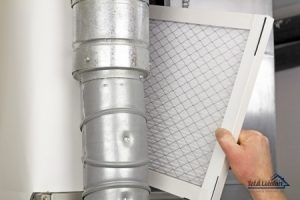Its easy to get lost thinking about the poor air quality outside. Allergens floating around, hot thick humid air, and the threat of air born contaminates from nearby factories or car fumes is always a threat. We often hear air pollution being talked about on major new channels. Did you know that your indoor air quality can be worse than the air outside?
Its true, the air inside of your home can easily become contaminated by mold, radon, or other contaminates from a dirty filter or a malfunctioning air purification unit. When your indoor air quality begins to take a dip than your family could be suffering the consequences.
What Are The Major Air Pollutants
When raging a war on poor indoor air quality, it is important to know the forces you are fighting against. These are the major indoor air pollutants that most families will face at least once in their lifetime.

Carbon Monoxide
Carbon monoxide is a gas that is a result of the incomplete combustion of fossil fuels. This pollutant can enter your indoor air either from a gas leak or from the result of a faulty heater.
Radon
Radon is an odorless and colorless gas that is formed within the earth and is naturally released from the surface. It is normal to have some traces of radon in the air, and a little bit of it will not harm you. When the levels begin to spike, however, the gas becomes harmful to humans. Radon levels rise in your home due to an increase in pressure, the wind blowing it into your home from the outside, and the rise in heat. It is important to have the radon levels in your home tested every once in a while, to ensure that the levels are not rising too high.
Volatile Organic Compounds
Volatile Organic compounds are gases that are used in a number of household products, such as paint or cleaning chemicals. In small doses, these compounds pose no real threat to humans, but exposure over time with rising levels can lead you to becoming seriously ill.
Mold And Mildew
Excessive moisture in your home, due to improper ventilation, causes the the perfect environment for mold and mildew to grow. The spores that they create get picked up by drafts and begin to pollute the air. This is a major cause of allergies and the onset of asthma symptoms.
How Poor Indoor Air Quality Affects Your Health
Your health is one of the most important and vital things for you to maintain. If you are noticing any of these symptoms in your home then it is time to get your indoor air quality checked.
- Dryness and irritation f the eyes
- Sore throat
- Runny nose
- Rashes or dry patches of skin
- Headaches
- Fatigue
- Shortness of breath
- Hypersensitivity
- Irritation of allergies
- Dizziness
- Trouble breathing
- Coughing
- Sneezing
A Little Experiment
Usually, those with allergies or asthma will begin to notice the symptoms of poor indoor air quality before anyone else in your home. If you are beginning to notice these symptoms but are not sure it is just a cold or other illness coming on, you can do a little experiment.
The next time you leave your home, take a particular notice of how you feel and write down your symptoms. When you return from your outing, make sure to make a note of how you felt being outside of your home. Did your symptoms change? If there was a significant change and you feel better being outside rather than inside your home, this is an indicator that your home is suffering from indoor air pollution.
Especially if you have asthma, prolonged exposure to indoor air contamination can lead to a serious illness and even hospitalization. You do not want it to get to this point.
How To Improve Your Indoor Air Quality
Step 1
The first step to help improve your indoor air quality is to know where the levels are at. You can always get your trusted HVAC specialists to come in and test the indoor air quality. This will help you understand what point you are starting at and then you can take the proper steps to improve it.
While you have your HVAC team helping you out with your indoor air quality testing, it is also important to get your HVAC unit tested. Proper maintenance of your unit can ensure that you have cleaner air and promotes the longevity of your system. Proper maintenance includes regular check-ups, cleaning of the filter system, and replacement or repair of broken parts or units when needed.
Step 2
The next step is to ensure that you properly clean your home, removing dust and dirt that can become pick up by drafts and lower your air quality. Just dusting once a week will result in a major improvement of your air quality and even improve the longevity of your air filter.
Step 3
Finally, ensure that your home has proper ventilation to reduce the build contaminants. Proper ventilation is a must for a number of reasons; one it allows the radon to move in and out of your home, avoiding it from building up. Secondly, it helps release the moisture out of your home allowing your walls and ceiling to stay dryer and be a deterrent for mold and mildew growth. (While some humidity in the air is good, too much can leave you feeling uncomfortable. Not to mention it is an open invitation for mold and mildew to move in.) Thirdly, whenever you are cleaning with chemicals such as Clorox, make sure you have proper ventilation. These substances create volatile organic compounds and can leave you feeling extremely dizzy if you are directly inhaling them. Proper ventilation will allow these compounds to escape out of your home as the air circulates, giving you fresher air to breathe without forcing you to stop your project.
Looking For An HVAC Team?
Looking for an HVAC team to help you in your war against poor indoor air quality in the Macon, GA area? Call the team that has won many battles against air contaminates, Total Comfort Cooling & Heating, LLC, by dialing 478-781-9107. We will help you to create a clean and fresh air for your home, and ensure that your HVAC system is running strong while we are there. Call us today to get your consultation from one of your representatives.
